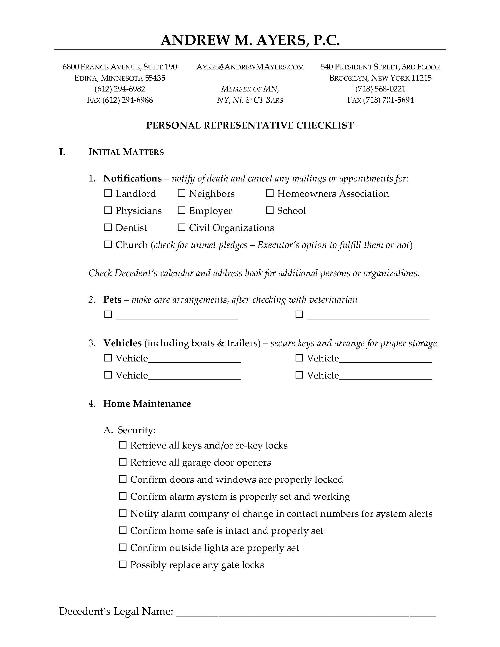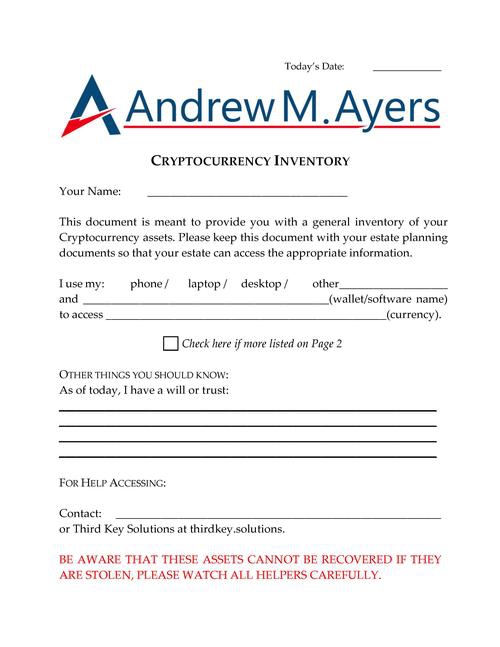 When it comes to estate planning, one of the key decisions that people have to make is whether to create a will or a revocable living trust-based estate plan. While a will-based plan requires you to leave all your assets in your name, a living trust-based estate plan involves creating a living trust instrument that dictates who inherits from you and transfers your assets from your name to your trust. This process can help you avoid the expenses and delays of probate, which can be a complex legal process that involves judges ordering third parties to transfer assets to your heirs.
When it comes to estate planning, one of the key decisions that people have to make is whether to create a will or a revocable living trust-based estate plan. While a will-based plan requires you to leave all your assets in your name, a living trust-based estate plan involves creating a living trust instrument that dictates who inherits from you and transfers your assets from your name to your trust. This process can help you avoid the expenses and delays of probate, which can be a complex legal process that involves judges ordering third parties to transfer assets to your heirs.
However, even if you create a living trust with the intent of avoiding probate, it's not always guaranteed that the probate court won't end up getting involved. This can be a source of frustration for many people who go through the estate settlement process, especially if they thought that a living trust would be enough to avoid probate court altogether.
Before you get too worried about this, you should also understand your local court's probate process. While some states have very complex probate court proceedings that can drag on for years, many other states allow for a simplified, informal process to probate someone's estate that is not as complicated as you may fear.
Why You Still May Have to Go To Probate Court
What are some of the top reasons why the estate of someone who created a living trust might still have to go through probate?
- Failing to retitle an asset into your trust when you create it;
- Opening an account or acquiring a piece of property after creating your trust, but not doing so in the name of your trust, could also complicate matters; and
- Having a check payable to your estate after you pass away could also require a probate to take place, even if you created a living trust.
If someone with a living trust passes away and a probate is still required, it's often easier to complete than if they had no trust. First, only non-trust assets need to go through probate, so trust assets can be dispersed immediately upon the death of the trust creator. Second, the probate is simpler because typically only one person is involved in the probate, as the "pour-over will" created when the trust was made likely names the same person as the executor of the will and the successor Trustee of the living trust.
While the existence of a living trust can simplify portions of the estate settlement process, disappointment among survivors can occur if they feel that the existence of the living trust alone was sufficient to avoid probate. This is why it's important to be fully informed about the potential outcomes of creating a living trust-based estate plan before making a decision.
Do I Still Need a Will?
If you decide to create a trust-based estate plan, you'll still need a will. One of the benefits is that the will can be used to catch any assets that are not in the trust and transfer them to the trust when you die. It can also allow you to name guardians for your children if they are under 18 - the trust only allows you to decide when the kids receive their inheritance.
Your trust will also be signed in a similar manner to your will. Technically, you need to make sure you sign the trust before the will so that the will has a place to "pour over" your assets. You'll often also need to sign Affidavits or Certifications to prove that your trust exists.
We've so far been looking at standalone trusts and whether or not they require probate for your estate. There is another category of trust, a testamentary trust, that you should also understand.
What is a Testamentary Trust?
A testamentary trust is a trust that is created in your will. Rather than be a separate document, it has terms that are spelled out in the pages of your will. Unlike a trust that you set up when you draft it, a testamentary trust only comes into existence when you die. This also allows you to modify the trust whenever you'd like while you are living. The trust becomes "Irrevocable" (unchangeable) after you die.
One of the most common types of testamentary trusts is one that is created for underage children. Many people don't want their 3-year-old to be inheriting the proceeds of their $5 million life insurance policy and instead set up a trust to manage the money for the child and to work with the child's guardian for when it is appropriate to distribute money for the care and support of the child.
Just like a standalone trust, your testamentary trust can be as simple or complex as your situation requires. For example, if your child has special needs and is receiving government benefits, you may want to use a testamentary trust to set up a special needs trust (although there may also be good reasons to set up a standalone trust instead).
Do You Need an Estate Plan?
If you don't already have an estate plan, or if you have one that needs to be updated, let's schedule a Legal Strategy Session online or by calling my Edina, Minnesota office at (612) 294-6982 or my New York City office at (646) 847-3560. My office will be happy to find a convenient time for us to have a phone call to review the best options and next steps for you to work with an estate planning attorney to get your estate plan prepared.






